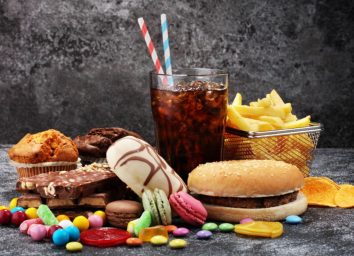5 Absolute Worst Foods for Heartburn, Says Dietitian
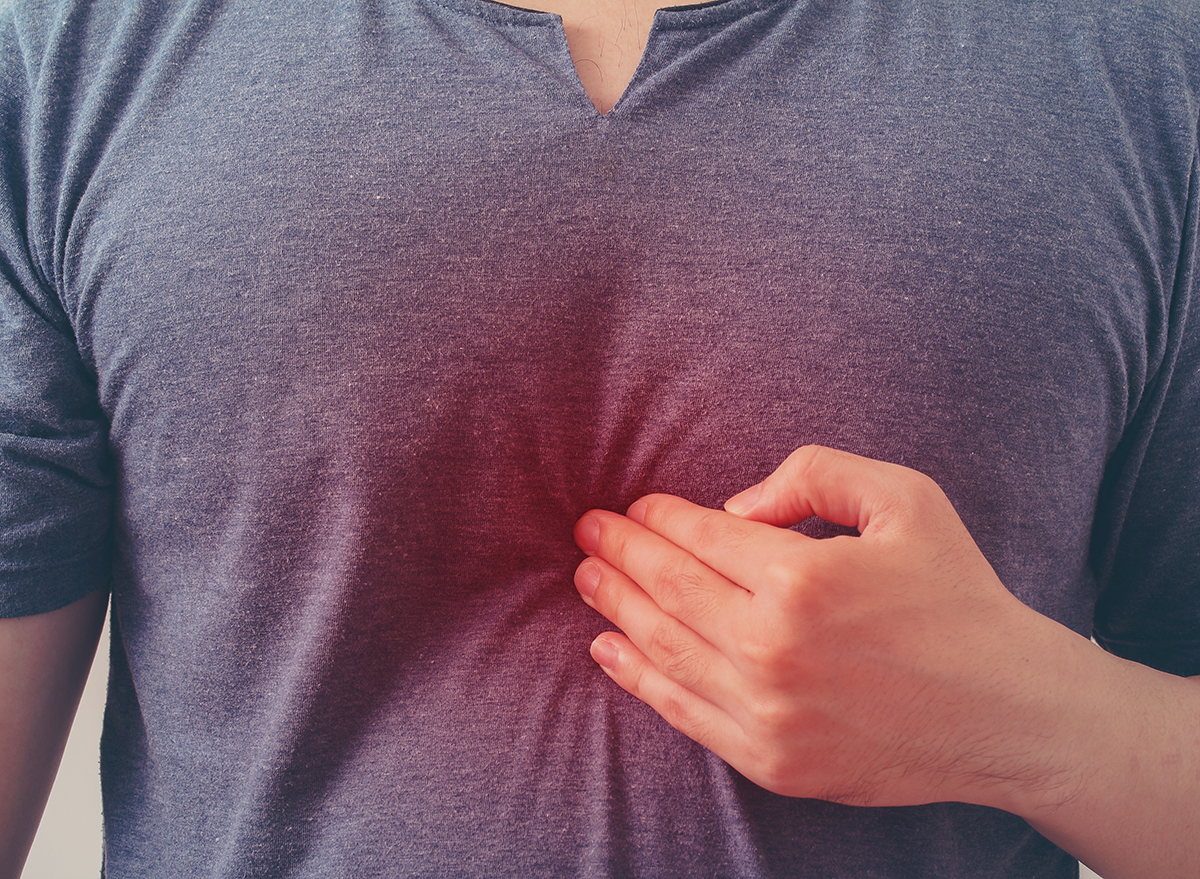
If you suffer from burning pain in your chest after you eat, later in the evening, or when your body is laying down or bent over, chances are you’re dealing with heartburn. If this happens occasionally to you, then there’s no need to panic. Heartburn can be managed usually through food and drink changes or some over-the-counter medications.
If you are in need of managing your heartburn, listen up. You can do so by cutting out some foods that can cause this symptom. We spoke with Lisa Moskovitz, RD, CEO of NY Nutrition Group and author of The Core 3 Healthy Eating Plan to determine what foods you should avoid if you don’t want to get heartburn. Then, for more on your heart, be sure to read The Worst Foods To Eat if Heart Disease Runs in Your Family.
Spicy foods
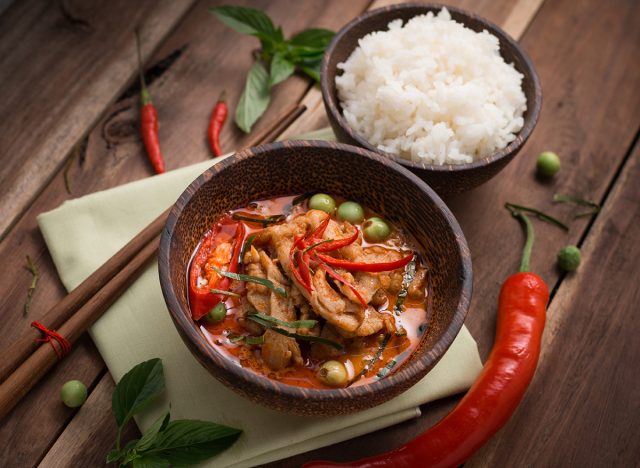
“If you like to live life on the adventurous side, think twice before that transfers into your cooking,” suggests Moskovitz. “Spicy foods contain capsaicin, which can irritate the lining of your esophagus and cause food to sit longer in your stomach increasing heartburn.”
Instead of going for those spicy seasonings, Moskovitz suggests swapping them for more mild flavoring agents such as salt, rosemary, oregano, thyme, basil, and ginger.
Fried foods
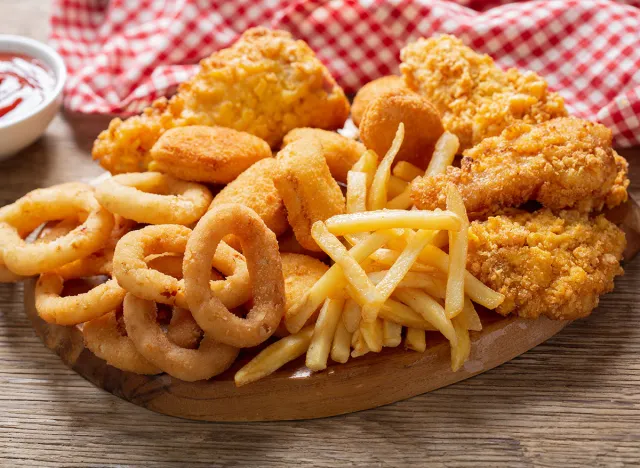
Friend foods aren’t your definition of health, so it makes sense it doesn’t boast well for your heart.
“Certain high-fat foods, like fried foods, stimulate bile salts which, are esophageal irritants and may loosen the sphincter that protects your esophagus from aggravating stomach acid,” explains Moskovitz.
If you are looking for the same crisp, try opting for air-fried. Or, try grilled, baked, broiled, steamed, and other lower-fat methods of cooking if acid reflux is an issue.
Citrus fruits
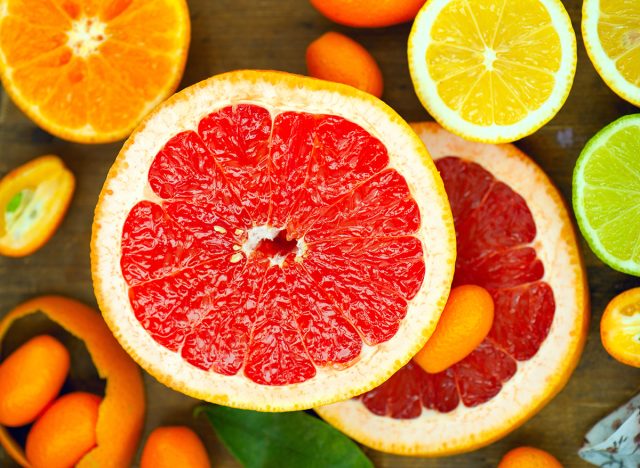
Moskovitz states that although vitamin-C-rich citrus fruits, such as oranges, lemons, and grapefruits, are very friendly to your immune system, they are not so friendly to your upper Gastrointestinal (GI) tract.
“Because they’re high in citric acid—what gives citrus fruits their distinct tart and sour taste—citrus fruits can increase stomach acid production which is a key culprit behind that burning feeling in your chest,” says Moskovitz.
However, there’s some good news if you’re a fruit lover.
“Fortunately, there is plenty of less offensive, but equally nutritious fruits to choose from like berries, bananas, and apples,” says Moskovitz.
Coffee and caffeine
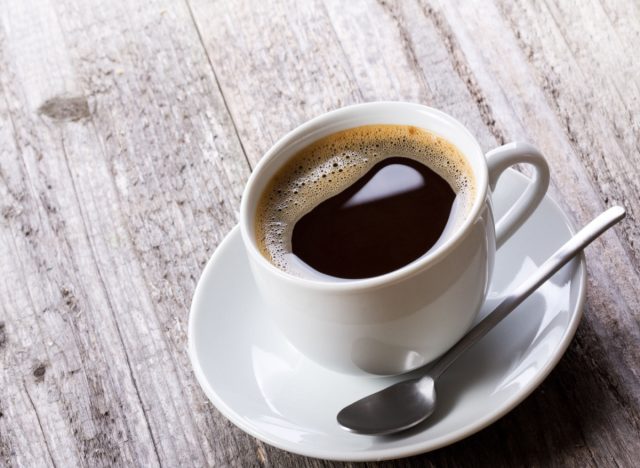
Coffee might be good for giving you a jolt of energy and better concentration. However, according to Moskovitz, it can also increase acidic gastric secretions and relax the lower esophageal sphincter. This allows those acids to shoot back up into your esophagus.
If you’re struggling with heartburn, Moskovitz suggests trying to gradually cut back on coffee and choosing lower caffeine beverages such as decaf coffee, tea, or naturally flavored waters.
Kombucha
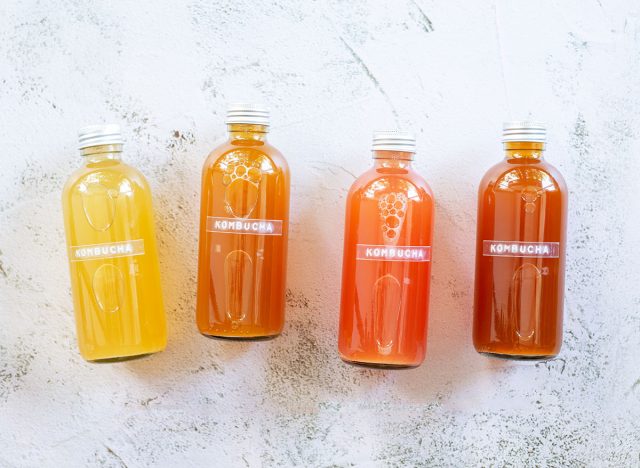
“We know that kombucha is trending as a popular gut-healthy beverage, but the irony is that it can simultaneously worsen certain GI symptoms,” says Moskovitz.
Moskovitz continues to state that kombucha is not just acidic, but it’s also carbonated – both of which can increase symptom-causing gastric secretions.
“If this is a problem for you, get your good gut bacteria from other fermented foods instead, including Greek yogurt, Kimchi, Kefir, and supplemental probiotics,” she says.


